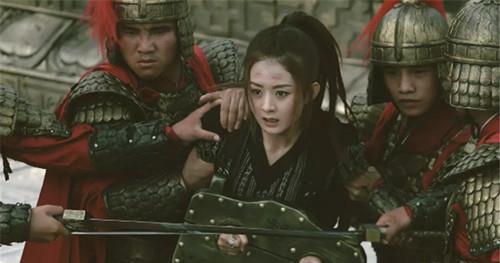When we watch some costume dramas, we often see things like "Drag it down, Zhulian Nine Tribes!" Words such as "eighteen generations of ancestors will be angry with you" and "you are simply six relatives do not recognize" have also made many people wonder, here is the "nine ethnic groups", and "eighteen generations of ancestors", and "six relatives", what are the "three ethnic groups", what is the relationship in the end?

This begins with the composition of our ancient society. Unlike modern people who live more independently, or small families, China's ancient life mainly relies on blood relations to form a large family to live together, for example, many villages in ancient times, in fact, are the relatives of a certain family, so many cold students will return to their hometowns to rebuild the ancestral hall after they have achieved fame, and the welfare can include all the villagers.
In this kind of family unit, the first to bear the brunt is the three tribes and the nine tribes, after all, when the ancient rulers punished the criminals, the favorite was to say "Zhulian Nine Tribes", followed by "exterminate the three tribes". The three clans are easier to understand, and there are two interpretations, one refers to the paternal family, the mother clan, and the sub-clan; the other refers to the paternal family, the brother clan, and the sub-clan.
The criminal law of the Zhulian clan was first seen in the Shang Dynasty, and when the Holy Emperor Shang Tang went out on the expedition, in order to ensure that his soldiers obeyed the instructions, he told them that if they did not abide by military discipline, their descendants would be implicated and killed together. Later, on the basis of the three ethnic groups, the concept of nine ethnic groups was gradually developed.
The Nine Tribes are also divided into two theories, one refers to the four clans of the father, the three clans of the mother, and the two clans of the wife, including the aunts, sisters, daughters and their children who are married by their own clan, as well as all the relevant men, the two families of the grandfather and the grandmother, and the sisters and sons born to the mother, as well as the father-in-law and the mother-in-law.
Another theory is to intercept the nine generations from GaoZu to Xuansun on the basis of the "Eighteen Generations of Ancestors". The JiuJiu Clan was already terrible enough, and Zhu Di also developed the Zhu Ten Clan on this basis, and when he killed the Great Confucian Fang Xiaoru, he implicated eight hundred and seventy-three people who died, which was simply outrageous.
When talking about the Nine Tribes, there is an algorithm that intercepts nine of the eighteen generations of the ancestors, so what are the complete eighteen generations of the ancestors? After throwing out oneself, from the most ancient count, the ancestor, the distant ancestor, the taizu, the liezu, the heavenly ancestor, the high ancestor, the great-grandfather, the grandfather, the father, and then the next few are the sons, grandchildren, great-grandchildren, xuansun, laisun, sun, still grandson, cloud grandson, and ear grandson.
As for the "six relatives" in the six relatives who do not recognize, in ancient times, "three, six, nine, ten, twelve" mostly referred to the general meaning, referring to a large number of meanings, so the interpretation is also more, generally speaking, mostly refers to the father, mother, brother, brother, wife, child of the six relatives, or refers to the maternal grandparents, parents, sisters, sisters, sons of wives and brothers, sons of subordinate mothers, sons of daughters.
It is precisely because the ancients attached great importance to kinship, including in-laws, and therefore the whole family benefited when glory was glorious, and it was naturally easy to involve other people in the family when they were in distress. Therefore, no matter when and in what situation, the ancients will bear the burden of what they do in the family.